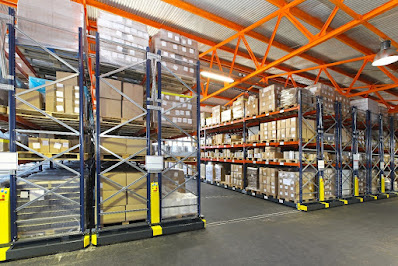Why The Pharma Industry Needs a Robust WMS
The global pharmaceutical industry has grown phenomenally over the past decade. This is reasonably so, given the advancement in research and innovation. However, since 2019 there has been a significant impact on this industry due to Covid-19, both on the demand and supply side. Manpower availability and logistics continuity were deeply affected exposing the need for local and regional self-reliance for manufacturing and warehousing. The result of which has been that The World Economic Outlook reported a global growth at 4.4%, considerably lesser by 7% as witnessed in 2019.
However, the Indian numbers for the pharma industry have been buoyant, to say the least. According to FICCI and EY’s Indian Pharmaceutical Industry 2021 report, India is on track to achieve $130BN target sales by 2030, at a CAGR of 12% from 2020-2030. This is much higher than global number predictions. And while India is gunning to become a global supplier of drugs, it is looking to get there by focusing on four key enablers.
Research & Innovation – By not just producing licensed drugs in India, but also actively pursuing research in the field of drugs and testing.
Healthcare access – Actuating deep penetration of healthcare across the country.
Access to medicines – Studying and building globally competitive drug pricing and procurement models so that access to drugs is not blocked.
Strengthening manufacturing and supply base – Decentralizing drug manufacturing and realizing the importance of efficient supply chain and logistics infrastructure.
Manufacturing Encouragement from the Government
India supplies over 60% of global demand for vaccines and over 40% of generic pharma demand in the US. No wonder it’s called the pharmacy of the world. India currently has more than 10,500 manufacturing units across the country, catering to more than 150 countries. To bolster these solid numbers further, the government is encouraging private manufacturers with new schemes and subsidies. The idea is to instill pride of quality in ‘Make in India’.
The offshoot of this nudge is that there will be satellite manufacturing units that will mushroom all over the country. This will, in no way, hamper the manufacturing quality, as stringent testing and manufacturing SOPS will ensure meeting global standards, but where breakage of quality might occur is warehousing and logistics. We know that all through the Supply chain, there is constant and consistent checking and tests. This makes it more crucial to have a seamless and world-class Warehouse Management Software (WMS).
WMS And Its Importance
Supply chains across industries cannot exist without robust warehousing, and this is of utmost significance in the pharma sector. Given its regulations adherence, drugs warehousing must be transparent, error-free, and seamless. Here are some of the other vital strong points of a good Warehouse Management Software.
Inventory Management – Perhaps no other manufacturing industry is as strict and a stickler for manufacturing and expiry date protocol as the pharma industry. And not without reason because its efficacy and people’s lives depend on it. An excellent WMS can track products in the warehouse as per expiry dates and help optimize first-expired-first-out meds.
Temperature Maintenance – Quite often pharmaceuticals must be maintained at constant temperatures. Without a doubt, this must be integrated with a WMS rather than manual operations. Automating climate-controlling can reduce contamination, promptly identify, and inform refrigerator/freezer breakage, and at the same time, optimize energy usage.
Security Concerns – Yes, a good WMS gives you a clear stock of all the inventory at any time in your warehouse. It also details stock coming in and batches going out. However, where it similarly excels is in labeling and vendor tracking. This is of importance when managing spillage and possible theft too. For more information, visit https://www.pharmision.barcodeindia.com/blogs/robust-wms-re-shaping-the-future-of-pharmaceutical-supply-chain/






